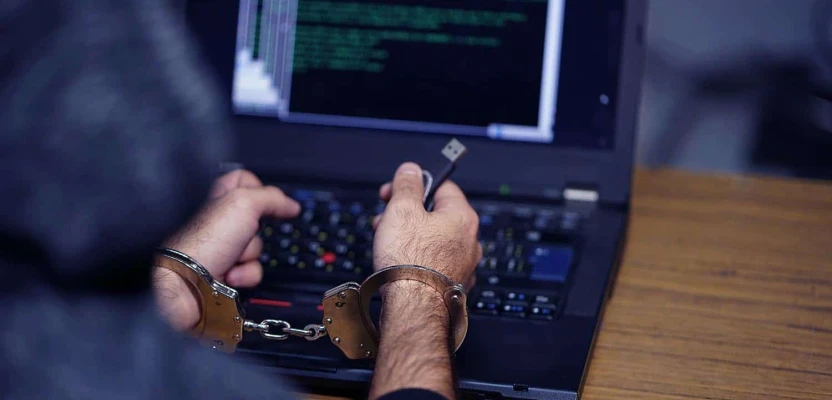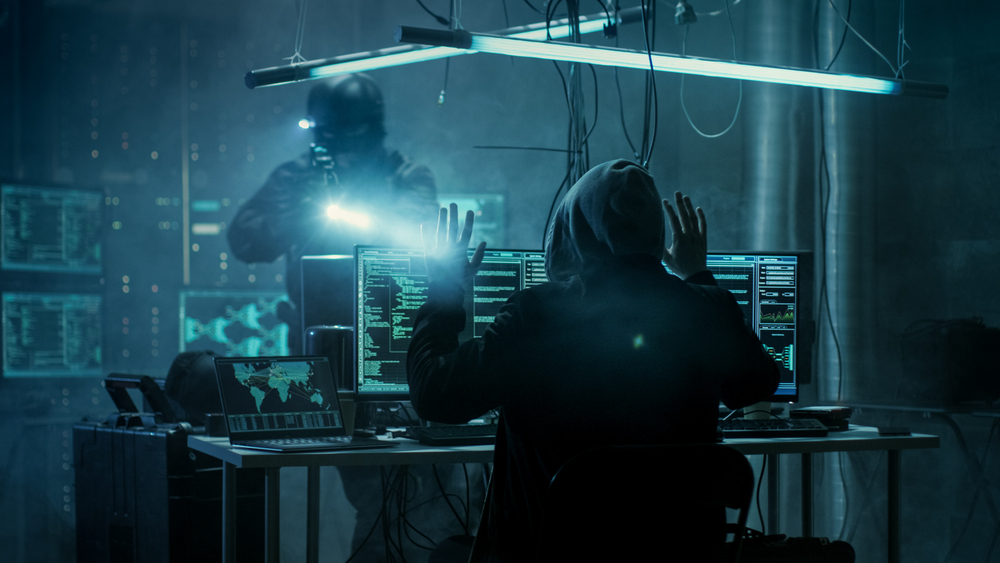
In the realm of cyberspace, the darkweb stands as a shadowy counterpart to the conventional internet, offering a haven for illicit activities. One of the most significant concerns in this concealed corner of the digital world is the sale of illegal goods and services. For those contemplating or involved in selling on darknet marketplaces, understanding the potential legal ramifications is crucial.
- What is the DarkWeb?
- Defining DarkWeb marketplaces
- Common features of DarkWeb marketplaces
- Types of goods and services sold
- Legal landscape of Darknet activities
- Factors influencing sentencing
- Notable cases of DarkWeb marketplaces
- Conclusion
- FAQs
What is the DarkWeb?
The darknet is a portion of the internet that is not indexed by traditional search engines like Google, Bing, or Yahoo. It requires special software to access, with Tor (The Onion Router) being the most well-known. Unlike the surface web, which is easily accessible and open to the public, the darknet is designed to offer anonymity and privacy to its users.
The darknet operates on the principle of anonymity. When a user accesses a website on the darknet, their data is routed through several intermediary nodes. Each node only knows the previous and next node in the chain, making it extremely difficult to trace the origin of the data. Data sent through the darknet is encrypted multiple times. Each node decrypts one layer of encryption to reveal the next node’s address, but not the final destination.
Defining DarkWeb marketplaces

A dark web marketplace is an online platform within the dark web where users can buy and sell goods and services. These marketplaces operate similarly to traditional e-commerce sites but with a key difference: they often deal in illegal or restricted items. Transactions on these platforms are typically conducted using cryptocurrencies, which help maintain user anonymity.
Common features of DarkWeb marketplaces
- Anonymity. Both buyers and sellers operate under pseudonyms. The use of encryption and Tor ensures that identities are hidden.
- Cryptocurrency transactions. Bitcoin and other cryptocurrencies are the standard payment methods, providing a layer of financial anonymity.
- Product listings. Items sold range from illicit drugs and counterfeit currency to stolen data and hacking services.
- User reviews and ratings. Similar to legitimate e-commerce sites, dark web marketplaces often have systems for rating transactions and providing feedback.
- Escrow services. To build trust, many marketplaces offer escrow services, holding funds until the buyer confirms receipt of goods.
Types of goods and services sold
While the dark web hosts some legitimate activities, dark web marketplaces are notorious for illegal trade. Common items and services include:
- Drugs. Various controlled substances, including narcotics, stimulants, and psychedelics.
- Weapons. Firearms, explosives, and other weapons are often available for sale.
- Stolen data. Personal information, credit card details, and login credentials.
- Counterfeit goods. Fake IDs, passports, and counterfeit currency.
- Hacking services. Offers for hacking into systems, stealing data, or conducting cyberattacks.
Legal landscape of Darknet activities

Engaging in activities on the darknet can have severe legal consequences. Different countries have specific laws and regulations that govern actions on the darknet, particularly those involving illegal trade. Below, we explore the legal frameworks in major regions such as the United States, the European Union, and Australia.
United States
In the United States, various federal statutes govern darknet activities, particularly those involving illegal goods and services.
Key laws and penalties
- Controlled Substances Act (CSA): Governs the manufacture, importation, possession, and distribution of certain drugs. Selling controlled substances on the darknet can lead to charges of drug trafficking, with penalties ranging from several years to life imprisonment.
- Gun Control Act and National Firearms Act: Regulate the sale and distribution of firearms and explosives. Illicit sale of these items can result in severe prison sentences.
- Identity Theft and Assumption Deterrence Act: Addresses fraud and identity theft. Selling stolen data or engaging in fraudulent activities on the darknet can lead to substantial prison time and fines.
- Money Laundering Control Act: Targets financial transactions intended to conceal the proceeds of illegal activities. Involvement in money laundering can result in hefty fines and long prison sentences.
European Union
The European Union has a comprehensive legal framework to combat cybercrime, including activities on the darknet.
Key laws and penalties
- EU Cybercrime Directive: Mandates member states to impose penalties for illegal access, data interference, and system interference. Engaging in such activities on the darknet can lead to significant prison terms.
- EU Drugs Strategy and Action Plan: Aims to reduce drug supply and demand. Darknet drug trafficking is heavily penalized, with sentences ranging from several years to life imprisonment.
- EU Firearms Directive: Regulates the acquisition and possession of firearms. Illegal trade in weapons on the darknet can result in severe penalties, including long prison sentences.
Australia
Australia has stringent laws to address cybercrime and darknet activities.
Key laws and penalties
- Criminal Code Act 1995: Includes provisions for drug trafficking, cybercrime, and other illegal activities. Selling drugs on the darknet can lead to life imprisonment.
- Cybercrime Act 2001: Provides penalties for unauthorized access to data and computer systems. Darknet activities falling under this category can lead to prison sentences of up to ten years.
- Firearms and Weapons Legislation: Strictly regulates the sale of firearms and explosives. Engaging in such activities on the darknet can result in lengthy prison terms.
Factors influencing sentencing
Several factors influence the sentencing for darknet activities, including the nature and quantity of goods, the defendant’s criminal history, and the level of sophistication and anonymity employed.
Nature and quantity of goods
The type and amount of illegal goods sold play a significant role in sentencing. For instance, selling large quantities of high-schedule drugs or military-grade weapons will attract harsher penalties.
Criminal history
A defendant’s prior criminal record is a critical factor in sentencing. Repeat offenders are likely to receive more severe penalties compared to first-time offenders.
Level of sophistication and anonymity
The level of sophistication used in committing the crime also affects sentencing. Those employing advanced methods to hide their identity and evade law enforcement may receive harsher sentences.
Cooperation with authorities
Defendants who cooperate with law enforcement may receive reduced sentences. Providing information on other darknet activities or individuals can be seen as a sign of remorse and willingness to assist in dismantling illegal networks.
Notable cases of DarkWeb marketplaces

Law enforcement agencies worldwide have been working tirelessly to infiltrate and dismantle darknet marketplaces, leading to several high-profile cases.
The case of Ross Ulbricht and Silk Road
Ross Ulbricht, operating under the pseudonym "Dread Pirate Roberts", founded Silk Road, one of the most infamous darknet marketplaces. Launched in 2011, Silk Road became a hub for illegal drug sales, among other illicit activities.
The FBI began investigating Silk Road in 2011. Ulbricht was meticulous in maintaining his anonymity, but a series of small mistakes led to his identification and arrest in October 2013. He was apprehended at a public library in San Francisco while logged into the Silk Road admin panel.
Ulbricht faced multiple charges, including:
- Conspiracy to commit money laundering
- Conspiracy to commit computer hacking
- Conspiracy to traffic narcotics
In 2015, he was found guilty on all counts and sentenced to life imprisonment without the possibility of parole.
Gal Vallerius (OxyMonster)
Gal Vallerius, known online as "OxyMonster", was a prominent vendor on the darknet marketplace Dream Market, selling oxycodone and other drugs.
Vallerius' downfall began with his online activities. Authorities traced his cryptocurrency transactions, leading to his identification. He was arrested in August 2017 at the Atlanta International Airport while en route to a beard competition in the United States.
Vallerius was charged with:
- Drug distribution
- Money laundering
In June 2018, he was sentenced to 20 years in prison after pleading guilty.
Matthew Phan
Matthew Phan, a Canadian national, was a prolific darknet drug dealer. He used various darknet marketplaces to sell narcotics and was known for his wide range of illegal offerings.
Phan was identified through a coordinated effort involving Canadian and international law enforcement agencies. They tracked his online activities, leading to his arrest in 2015.
Phan was charged with:
- Trafficking narcotics
- Possessing illegal weapons
In 2019, he was sentenced to 15 years in prison.
AlphaBay and Alexandre Cazes
AlphaBay was one of the largest darknet marketplaces, operating between 2014 and 2017. It was founded by Alexandre Cazes, a Canadian citizen known online as "DeSnake".
AlphaBay's success attracted the attention of global law enforcement. Cazes was eventually tracked down through digital breadcrumbs he left behind. He was arrested in Thailand in July 2017.
Following Cazes' arrest, AlphaBay was shut down in a coordinated operation involving the FBI, DEA, and Europol. Cazes was found dead in his Thai prison cell a week after his arrest, in what authorities ruled a suicide.
Conclusion
Selling on darknet marketplaces carries significant legal risks, with potential sentences ranging from several years to life imprisonment. The severity of the sentence depends on various factors, including the type and quantity of goods sold, the defendant’s criminal history, and the methods used to conceal the activity. As law enforcement agencies worldwide continue to intensify their efforts to combat darknet crime, the risks for sellers remain high. Understanding the legal landscape and potential penalties is crucial for anyone involved or considering involvement in darknet activities.
FAQs
What is the typical sentence for selling drugs on the dark web?
The sentence for selling drugs on the dark web can vary widely depending on factors such as the type and quantity of drugs, the defendant’s criminal history, and the jurisdiction. In the United States, drug trafficking charges can result in sentences ranging from several years to life imprisonment.
How do law enforcement agencies track down dark web sellers?
Law enforcement agencies use a combination of undercover operations, data analysis, and cryptocurrency tracking to identify and apprehend dark web sellers. They often collaborate internationally to tackle the global nature of these crimes.
What kind of penalties are imposed for selling weapons on the dark web?
Selling weapons on the dark web is heavily penalized under national and international laws. Penalties can include long prison sentences, substantial fines, and additional charges related to illegal arms trafficking and conspiracy.
Can first-time offenders expect lighter sentences for darknet crimes?
While first-time offenders might receive lighter sentences compared to repeat offenders, the severity of the crime plays a significant role in sentencing. Serious crimes like drug trafficking and weapon sales can still result in long prison terms even for first-time offenders.




Comments 0